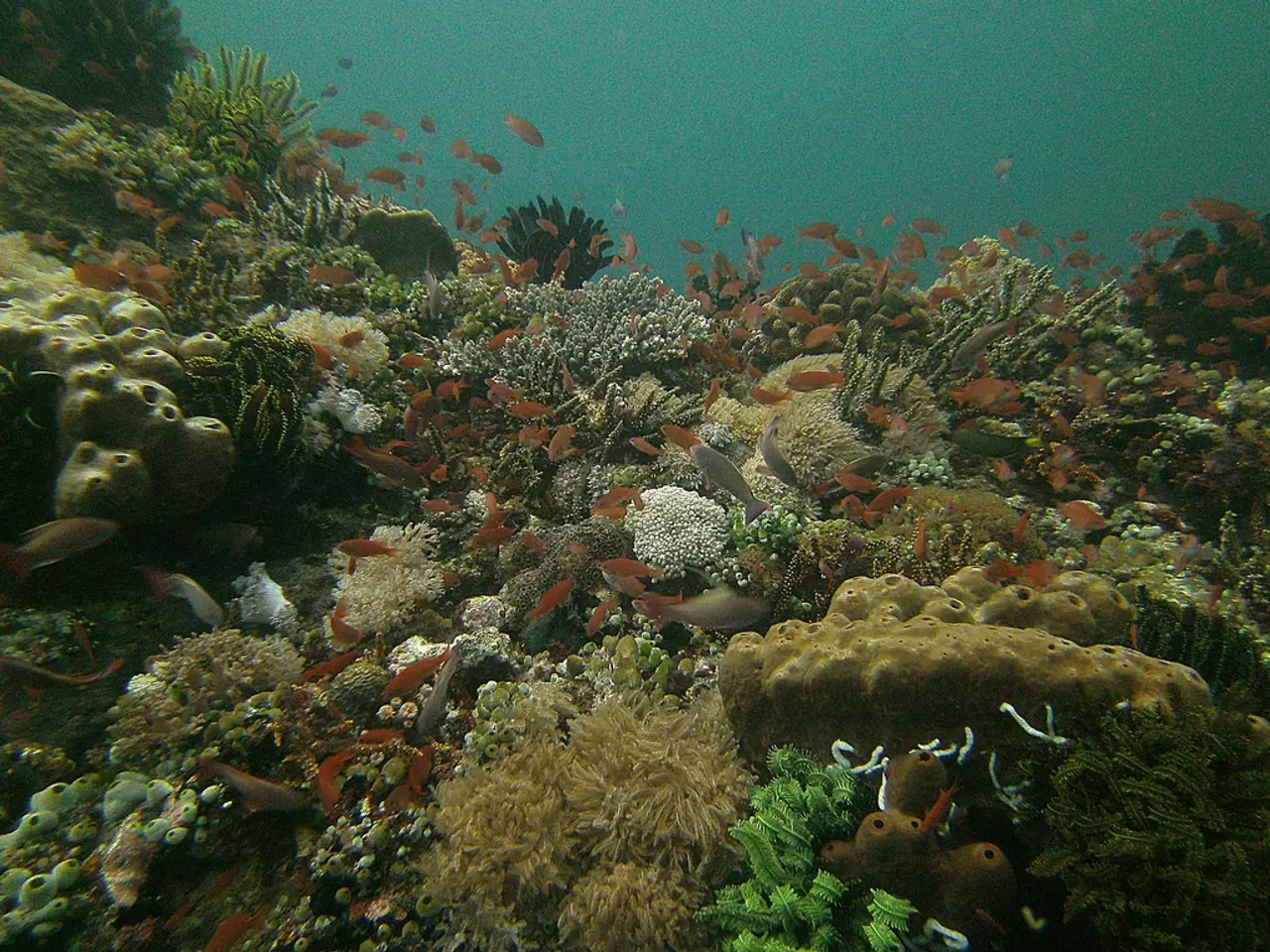Explore the Waves: Discover How Immersion in Oceanic Sounds Supports Marine Conservation
In the crystal-clear waters of the Caribbean Sea, sound propagates about four times faster than in air, enabling marine animals to communicate, navigate, find food, and avoid predators. This unique property of underwater sound is the foundation of Ocean World of Sound (WOS), a research initiative that uses Passive Acoustic Monitoring (PAM) to study marine ecosystems, particularly focusing on the Mesoamerican Reef—the second-largest barrier reef system in the world.
Heather Spence, a marine biology student, was inspired to find a solution for monitoring vast marine areas with minimal resources during a holiday in Cancún. Her idea was to use Passive Acoustic Monitoring (PAM) to "see" reef health through sound. In 2010, Heather, along with Dr. Jaime González Cano and the MPA team, launched the first-ever Passive Acoustic Monitoring program in the Mesoamerican Reef—Ears in the Caribbean.
WOS employs underwater microphones to capture the natural soundscape of the ocean, which includes fish calls, shrimp snaps, tidal shifts, and human-generated noise. The collected acoustic data enable researchers to track biodiversity changes, assess human impact, and better understand the reef's complex ecology without relying on visual observation, which is limited underwater due to light absorption and turbidity.
Over a decade, WOS has gathered more than 200 hours of underwater recordings from seven different listening stations along the Mexican Caribbean coast. This extensive sound archive serves both scientists and the general public by making the ocean’s acoustic environment accessible and interpretable, fostering broader awareness and conservation efforts.
The approach allows even non-experts to listen, recognize sound patterns, and gain insights into marine ecosystem behaviors. WOS's website provides updates on their science, workshops, and citizen science opportunities, inviting young people, divers, artists, and curious minds to engage in "active listening" through interactive workshops, educational challenges, art installations, and citizen science projects.
WOS's communication approach bridges the gap between science and the community, focusing on effective presentation methods. The initiative has organized 31 events, including talks, workshops, and trainings, totaling 152 hours and reaching over 1,700 people since 2021.
In addition to its work in the Mesoamerican Reef, WOS has initiated a pilot project assessing coral restoration efforts using PAM in the Maldives. A collaborative citizen science project with the University of Cádiz (INMAR) using sound data to train machine learning models to detect marine mammal whistles is also underway.
WOS is a global, transdisciplinary movement based in Cancún, Mexico, that empowers communities to protect the ocean using the transformational power of sound. As part of the UN Decade of Ocean Science for Sustainable Development, WOS has initiated Ocean World of Sound: MesoAmerican Reef as an endorsed action addressing three Ocean Decade Challenges: developing a sustainable, resilient, and equitable ocean economy, sustainably expanding the Global Ocean Observing System, and skills, knowledge, technology, and participation for all.
The GenOcean campaign, an official Ocean Decade campaign, showcases Decade Actions, collaborating organizations, and ocean leaders that focus on youth and citizen science opportunities. A citizen science group in Cancún has been created with participants from Mexico and Paris due to WOS's efforts.
For those interested in strengthening their connection to the ocean and their skills in deep listening, the WOS 30 Day Ocean Sound Challenge is available. By immersing themselves in the ocean's sounds, participants can gain a deeper understanding of the marine environment and contribute to its conservation.
References: 1. Ocean World of Sound. (n.d.). About Ocean World of Sound. Retrieved from https://oceanworldofsound.org/about/
- Heather Spence, inspired by the unique underwater sound environment, proposed using Passive Acoustic Monitoring (PAM) not only for studying marine ecosystems but also for monitoring reef health and mental wellness.
- WOS's mission extends beyond environmental science, as it fosters a connection between the community and the ocean by encouraging active listening and fostering awareness, particularly in areas such as health-and-wellness and climate-change, through educational opportunities and citizen science projects.




